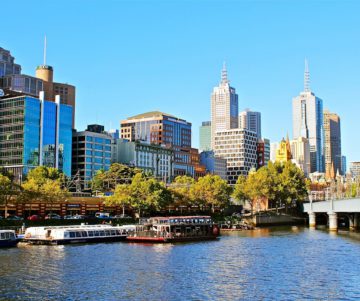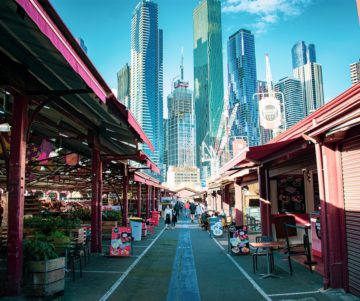
The Future Of Tech In Art Hotels
bianca | December 16, 2018 | 0 | My BlogIt’s apparent that the function of travelling in our lives is shifting. More and more, individuals see travel as a necessity instead of a luxury and believe it to be an increasingly vital part of their own lives. The future of tourism and travel has been driven by an intricate group of converging forces that are obliging the sector to consider how they could reshape the general experience.
The hotel market is experiencing a period of exceptional, irreversible modifications and will seem really different in 2020. Trends in engineering, entertainment, electricity and science will significantly alter the resort experiences for travellers.
Artificial Intelligence. Its applications are vast and I don’t have any doubts about its innovative adoption from the travel market in the years to come.
The chatbot called HiJiffy enables guests to reserve a space, access hotel services or be continuously informed of daily events, by simply texting the resort’s Facebook page. The goal of all hotel packages from Hobart to Hanoi will be producing an all-around hi-tech experience, so by 2020, we’ll observe an increase of technological options specially created for the millennial traveller.
Individualised Rooms
Hotel guests shortly are going to have the ability to personalise their stay through their smartphones. Whenever we book holidays, we pick a particular seat on the aeroplane. So, why can’t you decide on a particular area in the waterfront hotel you’ve chosen to stay at? Later on, this potential will definitely be a reality.
An individual will have the ability to select which floor, the dimensions of this space and all types of different factors. Besides choosing the qualities of the space, guests may have high tech features such as the ability to control both the lights and air conditioning with their cell phone. Guests are going to have the ability to customise with the assistance of their phones, the vast majority of the smart room.
Design
What’s more, rooms will get minimalistic layout rather than conventional bulky furniture. Individuals rarely unpack, thus there’s absolutely no demand for cupboards and we’ll begin seeing smart spaces for suitcases and bigger dressing areas — providing the impression of more space.
Lobbies will progressively become multi-used shared spaces for; restaurants, tech-lounges and business centres. People’s devices will be allowed to stream content anywhere in the hotel, which allows guests to function or socialise in any place in the resort.
Additionally, resorts will incorporate more natural substances and components into their own designs. Besides attempting to lower their carbon footprint, resorts will begin to use more natural lines, in addition to natural materials and colours, so as to give the resort a more organic vibe. As a result, the boundaries between inside and outdoors will become fuzzy.
A Cultural Experience
This is now extremely important for your millennial traveller. It hypothesised that resorts will put more emphasis on local tastes, regional artwork and brands. Hoteliers have started to realise that this provides a more real and unforgettable experience to their guests. By 2020, resorts will invest in getting actual exercise centres. It is also predicted that fitness equipment will be incorporated into guestrooms.







